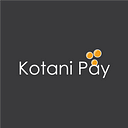How Crypto is Transforming The Gig Work Market in Africa
The Global Gig Economy currently generates $204 Billion, with a projection that this will grow to $455 Billion by 2023. The Gig Work Economy in Africa was estimated to be worth $300 Million as of 2019. With the informal sector playing a huge role in the employment level on the continent, the gig economy is a fundamental piece in the puzzle. For example, the gig economy was responsible for about 90% of new jobs created in 2018. The global gig work market is dominated by Amazon Turk and Crowdflower. GIg work refers to income-earning activities outside of traditional, long-term employer-employee relationships such as freelance work and independent contracting.
In 2020, the most popular tasks on Gig work platforms in Africa included repair, cleaning, and sales jobs offering commissions. Among the most used platforms were Lynk and Yoza in East Africa, Nomad and Secret Agent in South Africa, Service City and Lancer in West Africa, and Freelancer in North Africa.
Along with the rise of gig work platforms in Africa has been a rising trend of payment and settlement of wages to these workers using cryptocurrencies. Gig work platforms are increasingly leaning toward crypto payments due to the advantages crypto offers. The first of these is the dissolution of borders and barriers created by different fiat currencies held in different countries. Crypto payments allow gig platforms to build a global workforce of workers with seamless, affordable transfers on the Blockchain. This has the additional advantage of offering affordable talent from emerging markets in comparison to most developed markets. Secondly, the Blockchain serves as a transparent, immutable ledger of transactions between workers and work providers, acting as the single source of truth in case of disputes. Finally, crypto offers instant withdrawal capabilities for workers anywhere around the world unlike traditional channels which take days to settle.
Interestingly, crypto gig work platforms do not just offer traditional tasks such as repair and sales jobs. Blockchain technology and cryptocurrencies have enabled the emergence of a new model of remuneration. Two examples of platforms that are using the novel crypto-based approach in gig work payments include Earn.com and Storm X. These crypto microtask platforms enable users to earn crypto through cash-backs while shopping, or while learning about other Blockchain platforms.
Crypto Gig work in Africa is elevating the state of many individuals. With over 90% of new employment created in 2018 being gig work, the role such platforms play on the continent cannot be overstated. For example, Levelapp offers refugees digital work opportunities such as data annotation to build a pathway out of poverty for them and their families. Kandaweather is another gig work platform that offers university students an opportunity to earn by launching weather balloons that assist in collecting weather data.
To serve the needs of workers who earn in crypto, there is a need for an off-ramp that allows the conversion of crypto to fiat at affordable rates for micropayments. Kotani Pay is a USSD crypto-fiat off-ramp platform that enables Blockchain protocols, dApps, and Blockchain fintech companies to integrate seamlessly to local payment channels providing them with a reliable on ramp and off ramp service to reach a wider customer base in Africa. When crypto gig platforms such as Toca make payments to their workers, Kotani Pay’s APIs enable the workers to exit from crypto and withdraw their money through mobile money providers such as Safaricom’s M-Pesa.
Looking forward, the gig work market in Africa is expected to grow exponentially. Some of the drivers of this trend include a bulging youth population, an increasing need and demand for jobs on the continent, and an increase in the rate of mobile internet penetration. With these factors in play, there is an increase in the number of peer to peer traders as the exposure to crypto rises and cryptocurrencies are used more and more as a means of payment. The number of off-ramp partners is also set to increase, and platforms such as Kotani Pay are expected to broaden the range of services they offer to meet the needs of the youthful population.
Are you a FinTech that needs an off-ramp in Africa? Sign up here to integrate with Kotani Pay.
